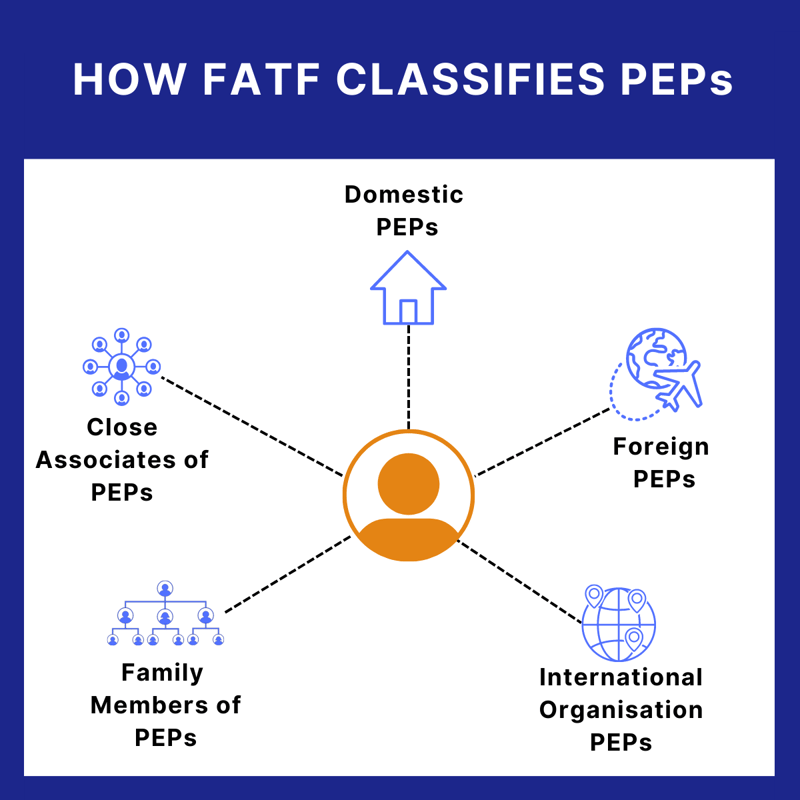Politically Exposed Persons (PEPs) pose significant challenges to anti-money laundering (AML) efforts worldwide. Due to their influential positions and access to substantial resources, they are at a higher risk of engaging in corruption, money laundering, terrorist financing, and bribery. Identifying and monitoring the financial activities of PEPs is crucial for financial institutions to prevent misuse of the financial system.
PEPs include individuals who are or have been entrusted with prominent public functions, as well as their family members and close associates. The risk profile of PEPs is heightened because their position may be exploited to commit financial crimes, including moving illicit funds under the guise of legitimate transactions. For this reason, financial institutions and regulatory bodies emphasize the importance of diligent scrutiny and enhanced due diligence processes when dealing with PEPs.
Understanding PEPs and Their Risks
Definition of a Politically Exposed Person (PEP)
A Politically Exposed Person (PEP) is someone who has been recognized as having a prominent public position, or someone who is closely related to such individuals. This definition includes a wide range of roles, such as government officials, political party leaders, judicial figures, and military officers. The close family members and business associates of these individuals are also classified as PEPs due to their potential access to the power and influence of the primary individual.
The High-Risk Nature of PEPs
PEPs are considered high-risk for engaging in financial crimes due to their position and the influence that comes with it. Their access to vast amounts of money and the ability to move it across borders makes them potential targets for corruption, money laundering, and even terrorist financing. The risks are compounded because PEPs may leverage their status to bypass standard regulatory oversight, making their financial activities less transparent and more susceptible to illicit dealings.
Methods PEPs Use to Evade Detection
To avoid detection, PEPs often employ sophisticated methods that mask their involvement in financial transactions. One common strategy is to reassign the legal ownership of assets to trusted friends or family members, making it difficult to trace the assets back to the PEP. Additionally, PEPs frequently use intermediaries to conduct transactions on their behalf, creating a web of financial moves that are hard to follow. They might also set up complex corporate structures without a clear business purpose, further obscuring the money trail and complicating efforts to identify suspicious activities.

Red Flags in PEP Transactions
In monitoring transactions involving Politically Exposed Persons (PEPs), there are several red flags that financial institutions and regulatory bodies look out for to identify potential illicit activities. These indicators help in the early detection of suspicious behavior that may be related to money laundering, corruption, or other financial crimes.
Frequent Use of Intermediaries
One significant red flag is the frequent use of intermediaries in transactions. When PEPs consistently involve third parties to carry out financial dealings, it can signal an attempt to mask the true origin or destination of funds. This practice makes it challenging to trace transactions back to the PEP, thereby increasing the risk of money laundering.
Complex Corporate Structures
Another red flag is the establishment of complex corporate structures that lack a clear or legitimate business purpose. These structures are often designed to confuse or obfuscate ownership and financial flows, making it difficult for regulators and financial institutions to understand the true nature of the business.
Frequent Changes in Asset Ownership
Lastly, frequent changes in asset ownership, particularly to individuals or entities closely associated with the PEP, can indicate attempts to disguise the true ownership of assets or to launder money. These changes often lack legitimate economic rationale and are intended to complicate the tracking of funds.
Strategies to Mitigate PEP-Related Risks
Financial institutions face the critical task of mitigating risks associated with Politically Exposed Persons (PEPs), a challenge that demands sophisticated strategies and technologies.
Network Analysis
One effective approach is through Network Analysis, which plays a crucial role in unraveling the complex ownership and transaction networks often used by PEPs to conceal illicit activities. By dissecting these intricate linkages between entities and associates, network analysis enables institutions to detect suspicious connections and patterns that might otherwise go unnoticed, enhancing the ability to identify potential risks early on.
Risk Modeling
Another pivotal strategy involves Risk Modeling, where advanced risk models are utilized to pinpoint deviations from normal transaction behavior. This process is vital for monitoring transactions over extended periods, allowing for the identification of anomalies that could indicate money laundering or other fraudulent activities. By analyzing behavior over 30, 60, 90 days, or even longer, risk models provide a nuanced understanding of transaction dynamics, making it easier to spot irregularities that merit further investigation.
Investigative Measures
When red flags are raised, either through network analysis or risk modeling, Investigative Measures come into play. Deeper investigation is triggered to explore the nature of these anomalies, with a focus on understanding the context and the parties involved. Alerts play a crucial role in this phase, serving as timely indicators of suspicious activities that require immediate attention. The agility and depth of these investigative measures are critical in ensuring that potential risks associated with PEPs are comprehensively addressed, safeguarding against the exploitation of financial systems for illicit purposes.
The Role of AFC Ecosystem in Combatting PEP-Related Risks
The Anti-Financial Crime (AFC) Ecosystem represents a groundbreaking approach in the fight against financial crimes, including those involving Politically Exposed Persons (PEPs). This ecosystem is a tech-enabled, invite-only community platform that facilitates a collaborative environment for financial crime experts from various sectors. By sharing insights and new methods or "typologies" of financial crime, the AFC Ecosystem empowers institutions to enhance their defenses against complex schemes, including those executed by PEPs, through collective knowledge and real-time scenario analysis.
Central to the AFC Ecosystem's effectiveness is its ability to aid in the detection and prevention of financial crimes by leveraging community-driven insights and sharing real-world scenarios. This collaborative approach ensures that members can access a vast repository of financial crime patterns, known as "typologies," which are instrumental in preparing for and preventing novel types of financial crime. By integrating these insights into their operations, financial institutions can significantly improve their risk coverage and update their defense mechanisms against the sophisticated methods used by PEPs to evade detection.
The importance of identifying and mitigating risks associated with Politically Exposed Persons (PEPs) cannot be overstated in the ongoing battle against financial crime. PEPs, by virtue of their positions, have the potential to exploit the financial system for illicit purposes, making vigilance and advanced detection strategies essential. Through collaborative efforts and the utilization of cutting-edge tools like the Anti-Financial Crime (AFC) Ecosystem, financial institutions can significantly enhance their capabilities in spotting and preventing the sophisticated schemes employed by PEPs.
Anti-Financial Crime Compliance with Tookitaki?



